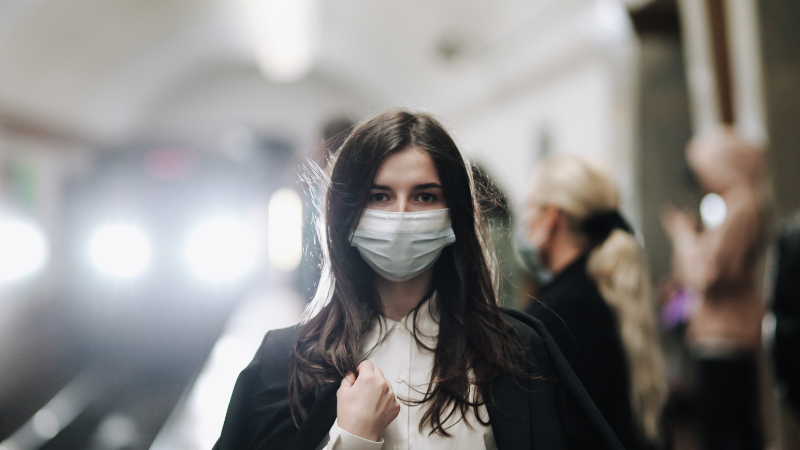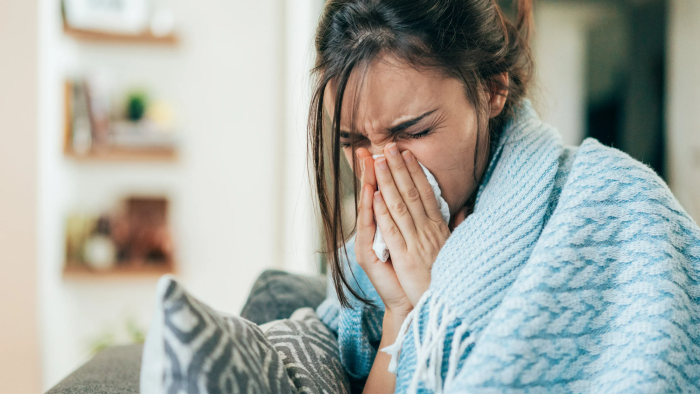
-
Understanding primary immunodeficiency (PI)

Understanding PI
The more you understand about primary immunodeficiency (PI), the better you can live with the disease or support others in your life with PI. Learn more about PI, including the various diagnoses and treatment options.
-
Living with PI
-
Addressing mental health
-
Explaining your diagnosis
- General care
- Get support
- For parents and guardians
-
Managing workplace issues
- Navigating insurance
-
Traveling safely

Living with PI
Living with primary immunodeficiency (PI) can be challenging, but you’re not alone—many people with PI lead full and active lives. With the right support and resources, you can, too.
-
Addressing mental health
-
Get involved

Get involved
Be a hero for those with PI. Change lives by promoting primary immunodeficiency (PI) awareness and taking action in your community through advocacy, donating, volunteering, or fundraising.
-
Advancing research and clinical care
-
Grants
-
IDF surveys
-
Participating in clinical trials
-
Diagnosing PI
-
Consulting immunologist
-
Clinician education

Advancing research and clinical care
Whether you’re a clinician, researcher, or an individual with primary immunodeficiency (PI), IDF has resources to help you advance the field. Get details on surveys, grants, and clinical trials.
-
Grants

COVID-19 can cause serious illness
- Primary immunodeficiency (PI) is a risk factor for severe COVID-19. Other risk factors include being 65 years of age or older and having other chronic conditions.
- Stay up-to-date on COVID-19 vaccines and use good hygiene to prevent infection; use masks and avoid indoor crowds during COVID-19 peaks.
- Make a COVID-19 testing and treatment plan with your healthcare provider.
- If you have any of the following symptoms, test for COVID-19 and other illnesses as soon as possible and notify your healthcare provider:
- Fever, chills, or body aches.
- Cough or sore throat.
- Stuffy or runny nose.
- Nausea, vomiting, diarrhea, or stomach pain.
- If you are having trouble breathing, get emergency medical attention right away.
What is COVID-19?
COVID-19, sometimes known as COVID or the coronavirus, is a contagious respiratory disease. Symptoms vary from person to person, with some people experiencing no or mild symptoms while others experience life-threatening disease. COVID-19 symptoms can include fever or chills, cough, fatigue, muscle or body aches, headache, new loss of taste or smell, sore throat, stuffy or runny nose, nausea or vomiting, diarrhea, and shortness of breath.
When COVID-19 first infected people, it was considered an epidemic health emergency. COVID-19 has since become endemic, which means that it continues to spread widely at low levels around the world. In 2023, the U.S. Centers for Disease Control and Prevention (CDC) estimates that 75,000 people in the U.S. died from COVID-19 complications, which means that COVID-19 continues to be more deadly than the flu. Certain risk factors make people more likely to have a severe infection, but anyone can develop severe disease, even individuals who have had mild COVID-19 in the past.
Seek immediate medical attention if you have any of the following symptoms, which can indicate severe COVID-19:
- Trouble breathing.
- Persistent pain or pressure in the chest.
- New-onset confusion.
- Inability to wake up or stay awake.
- Pale, gray, or blue-colored skin, lips, or nail beds, depending on skin tone.
- Vomiting or diarrhea leading to dehydration.
People who have had COVID-19 can also develop two very different complications after their initial infection—multisystem inflammatory syndrome (MIS-C/MIS-A) or long COVID. Again, while there are factors that increase a person's risk, anyone, including children and those with mild COVID-19 symptoms, can develop these complications.
MIS-C/MIS-A is a very rare but life-threatening condition that develops up to eight weeks after the initial COVID-19 infection. Those with MIS-C/MIS-A have a fever above 100° F (38°C) for more than 24 hours with evidence of inflammation throughout their bodies, including:
- Stomach pain, diarrhea, or vomiting.
- Bloodshot eyes.
- Dizziness or lightheadedness.
- Confusion or seizures.
- Skin rash.
- Swelling of the hands, feet, lips, or tongue.
- Signs of shock.
Seek medical attention immediately if you have symptoms of MIS-C/MIS-A.
The National Academies of Sciences, Engineering and Medicine defines long COVID (also known as post-acute sequelae of COVID or PASC) as a chronic condition that lasts at least three months after the initial COVID-19 infection. Symptoms vary and can include shortness of breath, cough, persistent fatigue, fatigue after exercise or exertion, cognitive problems such as brain fog and memory changes, recurring headache, lightheadedness, rapid heartbeat, sleep disturbance, problems with taste or smell, bloating, constipation, and diarrhea.
COVID-19, colds, respiratory syncytial virus (RSV), and the flu have overlapping symptoms but are different respiratory illnesses with different treatments. Because symptoms alone can’t determine which illness someone has, it’s important to get tested if you feel sick. Note that it is possible to get multiple respiratory illnesses at the same time.
Does PI put you at risk for severe COVID-19, MIS-C/MIS-A, or long COVID?
There is no definitive data on whether those with PI are more likely to get COVID-19 than others. However, there have been studies looking at PI and the course of COVID-19, including severe COVID-19, MIS-C/MIS-A, and long COVID.
Importantly, age, regardless of any other factor, is the single greatest risk factor for developing severe COVID-19. An analysis of adults hospitalized in 2020 that adjusted for chronic conditions found that:
- Those 40 and older still had a higher risk of poor outcomes (intensive care unit (ICU) admission, mechanical ventilation, and/or death) from COVID-19 compared to those ages 18-39.
- The risk was highest for those 65 and older, who were more than six times more likely to die from COVID-19 than adults 18-39 years old.
PIs that disrupt the type I interferon response like TLR7 deficiency or autoimmune polyendocrinopathy syndrome type 1 (APS-1, also known as autoimmune polyendocrinopathy-candidiasis-ectodermal dystrophy or APECED) place individuals at very high risk for developing severe COVID-19. The interferon response is critical for controlling the virus early on and, without it, the virus spreads rapidly in the body.
The data for most other types of PI are less definitive. However, a large CDC study looking at healthcare records found that adults with PI and COVID-19 who went to the emergency room were hospitalized, were admitted to the ICU, were put on ventilators, and died at higher rates than those without PI. The increased risk ranged from 1.4 (ventilation or death) to 2.4 (hospitalization) times higher than those without PI.
In addition to PI, certain medical conditions, including some that tend to co-occur with or result from PI (bolded below), make it more likely that someone will develop severe COVID-19.
- Chronic kidney disease.
- Chronic lung diseases:
- Bronchiectasis.
- Chronic obstructive pulmonary disease (COPD).
- Interstitial lung disease.
- Pulmonary embolism.
- Pulmonary hypertension.
- Chronic liver diseases:
- Non-alcoholic fatty liver disease.
- Alcoholic liver disease.
- Autoimmune hepatitis.
- Cystic fibrosis.
- Diabetes.
- Heart conditions:
- Heart failure.
- Coronary artery disease.
- Leukemia and lymphoma.
- Mood disorders, including depression.
Medical treatments and behaviors can also be risk factors for severe COVID-19, including:
- Being a current or former smoker.
- Being the recipient of a hematopoietic stem cell or solid organ transplant.
- Use of immunosuppressants like corticosteroids.
Risk factors are cumulative, which means that the risk of developing severe COVID-19 increases for every additional risk factor a person has. For example, a person who is 18 years old with an antibody deficiency (one risk factor) is less likely to become severely ill with COVID-19 than someone who is 65 years old with an antibody deficiency and bronchiectasis (three risk factors).
MIS-C affects approximately 1 in 10,000 children who have had COVID-19, but there are also rare reports of MIS in adults (MIS-A). Certain types of PI that include immune dysregulation are associated with developing MIS-C. Genetic studies of children with MIS-C have identified variants in the following PI-related genes:
- AP3B1: Hermansky-Pudlak syndrome, type 2.
- C6, C9: Complement deficiency.
- CYBB: Chronic granulomatous disease (CGD).
- IFNAR1: IFNAR1 deficiency.
- LYST: Chédiak–Higashi syndrome.
- PRF1, STXBP2, UNC13D: Hemophagocytic lymphohistiocytosis (HLH).
- SOCS1: SOCS1 deficiency.
- TLR3: TLR3 deficiency.
- XIAP: X-linked lymphoproliferative syndrome 2 (XLP-2).
There are no data on whether individuals with other types of PI, such as antibody deficiencies, are at increased risk for MIS-C/MIS-A.
Around 6% of adults and 1% of children develop long COVID according to estimates. There is little research on long COVID and PI, but one study of healthcare claims within a nonprofit health system in New England found that those with PI were about three times more likely to have a long COVID diagnosis compared to individuals without PI.
What causes COVID-19 and how does it spread?
COVID-19 is caused by a coronavirus called SARS-CoV-2. The SARS-CoV-2 virus spreads primarily through the air when an infected person coughs, sneezes, talks, or exhales. Others then inhale or come in contact with viral particles. The viral particles enter the body through mucous membranes in the nose, mouth, and eyes.
To a lesser extent, COVID-19 can also be spread by touching contaminated surfaces and then touching your nose, mouth, or eyes.
People with COVID-19 are most contagious within the first five days of symptoms but can remain infectious up to 14 days or longer. Note that people who are immunocompromised, including those with PI, can have prolonged or persistent infections that last for a month or more. People who are infected with COVID-19 but have no symptoms are also contagious and can still spread it to others.
Get vaccinated
Visit the Center for Disease Control and Prevention's (CDC) website to find vaccines near you.
Protect yourselfHow do you avoid COVID-19?
A study conducted through the USIDNET patient registry demonstrated that vaccinated people with PI who had COVID-19 were significantly less likely to be hospitalized, be admitted to the ICU, or die than those with PI who were not vaccinated.
As with the flu vaccine, the Food and Drug Administration (FDA) recommends periodic updates to COVID-19 vaccines so that they match circulating SARS-CoV-2 strains. The current 2024-2025 COVID-19 vaccines target the KP.2 strain of SARS-CoV-2 and became available in September 2024.
The CDC recommends that everyone 6 months old and older receive at least one dose of the most current COVID-19 vaccine. See CDC’s page for those who are moderately to severely immunocompromised for the most up-to-date recommendations on whether to receive more than one dose.
Why should everyone be immunized? First, many people with PI develop at least some antibodies and a T cell response, which is important for controlling viral infections, to the vaccine. Those who are on immunoglobulin (Ig) replacement therapy (IVIG or SCIG) receive some protection from pooled COVID-19-neutralizing antibodies in their Ig. However, Ig manufacturing takes six months or more from the initial plasma donation. Vaccination can provide additional protection against newer strains, as well as an extra layer of protection.
Finally, household members of people with PI should get vaccinated to create a "protective cocoon" around the person with PI and decrease their exposure to the SARS-CoV-2 virus.
The FDA approved pemivibart, made by Invivyd and marketed under the trade name Pemgarda, in March 2024. Pemgarda is a monoclonal antibody, which means that unlike vaccines, it provides protection regardless of how well a person’s immune system works. It is meant to be used before exposure to prevent COVID-19 in those who are at least 12 years of age, weigh at least 88 pounds, and are moderately to severely immunocompromised. It is not approved for use after exposure or infection.
Pemgarda is given as an intravenous infusion every three months and must be prescribed by a healthcare provider. Infectious Disease Society of America’s clinical guidelines for Pemgarda can help healthcare providers determine if their patients should receive it. It is typically given at an infusion center or other healthcare facility; see Invivyd’s facility locator for locations that offer Pemgarda.
Respiratory viruses like COVID-19 spread through the air, so crowded, indoor spaces with poor airflow increase the possibility of a sick person infecting others. The Environmental Protection Agency (EPA) recommends improving indoor ventilation as a way to protect against COVID-19 spread.
Simple actions you can take include:
- Opening windows and doors.
- Setting HVAC system fans to run continuously.
- Using high-filtration HVAC filters and replacing them often.
- Using air purifiers/cleaners that meet certain criteria.
There are several strategies centered around avoiding contact with viral particles that can help you stay well:
- Use a well-fitted N95 or KN95 mask to completely cover your nose and mouth to avoid inhaling viral particles.
- During COVID-19 surges, consider avoiding crowded indoor areas such as shopping malls, restaurants, and movie theaters.
- Avoid individuals who are sick.
- Try not to touch your nose, mouth, or eyes, as germs can spread this way.
- Regularly wash your hands with soap and water for 20 seconds, especially after coughing or sneezing. Hand sanitizer may not be as effective in killing the SARS-CoV-2 virus.
- When coughing or sneezing, cover your nose and mouth with a sleeve, elbow, or tissue. Dispose of the tissue after use.
- Stay home from work or school until you have been fever-free AND your symptoms are improving for 24 hours. Take additional precautions, like wearing a mask and distancing from others, for five days.
Keeping safe from COVID-19 at IDF in-person events
The health and safety of all participants is of paramount importance to IDF as we return to in-person events.
- Overall, IDF's guidelines prioritize the health and safety of all attendees and comply with the CDC's recommendations to ensure the success of in-person events. IDF event guidelines follow minimum federal requirements and consider more stringent state and local guidelines and those of the venue to ensure the safety of all attendees.
- Attendees of the PI Conference will be provided with a choice of lanyard noting their level of social distancing comfort.
- While masks are not required, they are encouraged in spaces where social distancing is not possible. If you decide to wear a mask, please choose N95 or KN95 and change as often as needed. Masks will be available.
- IDF will be measuring the air carbon dioxide levels in the hotel and notifying attendees if levels exceed recommended readings.
- Stay home when appropriate: If you have tested positive for COVID-19 (or flu or RSV), are waiting for test results, have symptoms, feel sick or unwell, or have had close contact with a person who has tested positive, please do not attend the PI Conference.
- IDF reserves the right to implement additional requirements in the event of a substantial increase in COVID-19 transmission rates in the county or surrounding counties.
What to do if you get COVID-19
People with PI should discuss plans with their healthcare provider for dealing with COVID-19, including:
- How and where will you get tested for COVID-19 or other, similar respiratory viruses like influenza?
- What antiviral medication(s) does your healthcare provider recommend and how will you get them?
- What symptoms should you pay particular attention to and when should you seek emergency care?
In case of illness, those with PI should immediately test for COVID-19 using an unexpired, rapid antigen test at home. Keep in mind that rapid antigen tests may be negative early in an infection even if you really do have COVID-19. If the rapid test is negative, consider getting a more sensitive PCR test (sometimes called a NAAT test) and testing for other respiratory viruses. These tests are typically available at pharmacies, urgent care centers, and healthcare provider offices.
If you test positive for COVID-19 by either a rapid antigen test or a PCR test, contact your healthcare provider to get and start antiviral treatment as soon as possible. COVID-19 antivirals are most effective within 5-7 days of symptoms appearing.
Note that many people delay COVID-19 antiviral treatment because they don’t feel ‘that bad’ initially, but mild symptoms can rapidly become serious. Don’t wait!
What treatments are available for COVID-19?
There are several antivirals available to treat COVID-19:
A pill that is taken twice daily for five days and must be started within five days of symptoms. Paxlovid is FDA-authorized for those 12-17 years of age and FDA-approved for those 18 years old and older. Use the FDA’s checklist with your healthcare provider to determine if you can safely take Paxlovid.
A pill that is taken twice daily for five days and must be started within five days of symptoms. Lagevrio is FDA-authorized for those 18 years old and older who cannot safely take Paxlovid.
Remdesivir is given intravenously over three days and must be started within seven days of symptoms. It is FDA-approved for those 28 days old or older who weigh at least 3 kg.

Navigating flu season
Learn about this year’s vaccines, influenza symptoms and treatments, and how to prepare if someone in your family has primary immunodeficiency.

IDF takes action
Since COVID-19 emerged, IDF has advocated for policy and regulatory changes that support, uplift, and protect people with PI through the Immunocompromised Collaborative.
Latest infectious disease resources
This page contains general medical and/or legal information that cannot be applied safely to any individual case. Medical and/or legal knowledge and practice can change rapidly. Therefore, this page should not be used as a substitute for professional medical and/or legal advice. Additionally, links to other resources and websites are shared for informational purposes only and should not be considered an endorsement by the Immune Deficiency Foundation.
Sign up for updates from IDF
Receive news and helpful resources to your cell phone or inbox. You can change or cancel your subscription at any time.





The Immune Deficiency Foundation improves the diagnosis, treatment, and quality of life for every person affected by primary immunodeficiency.
We foster a community that is connected, engaged, and empowered through advocacy, education, and research.
Combined Charity Campaign | CFC# 66309




